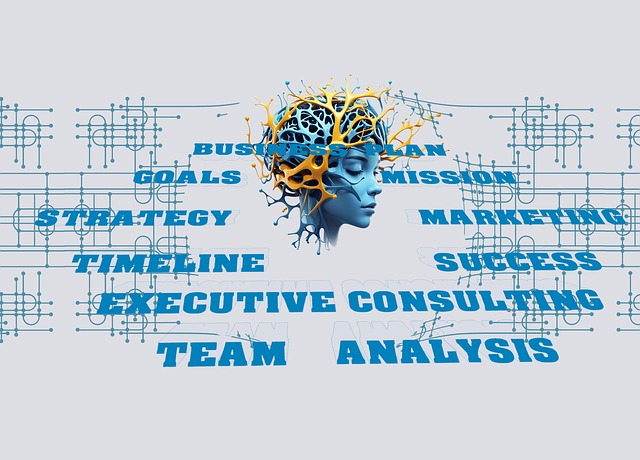Artificial Intelligence (AI) is reshaping business through IT planning and strategy, offering growth opportunities, process optimization, and competitive advantages. By integrating AI, companies automate tasks, enhance data analysis for informed decision-making, and personalize customer experiences, leading to increased efficiency, cost savings, and market foresight. This approach ensures businesses remain dynamic, innovative, and responsive in a digital era driven by AI and automation.
In today’s digital era, Artificial Intelligence (AI) and automation are no longer futuristic concepts but powerful tools for business innovation. This article explores how AI is revolutionizing operations across industries, from automating routine tasks to providing data-driven insights that enhance decision-making. We delve into understanding AI’s transformative potential and its role in IT planning and strategy implementation, ensuring businesses stay competitive and future-proof.
Understanding AI's Potential for Business Transformation
Artificial Intelligence (AI) is no longer a futuristic concept but a powerful tool that can significantly transform business operations and drive innovation. By understanding its potential, businesses can unlock new opportunities for growth and stay ahead in an increasingly competitive market. AI’s ability to process vast amounts of data, automate repetitive tasks, and provide valuable insights is a game-changer for many industries.
Effective IT planning and strategy involve recognizing how AI can revolutionize processes such as decision-making, customer service, and supply chain management. Businesses that integrate AI into their strategies can enhance efficiency, improve productivity, and create dynamic new products or services. This technology offers a competitive edge by enabling companies to adapt quickly to market changes, personalize experiences for customers, and optimize resource allocation.
Automating Routine Tasks: Efficiency Gains and Cost Savings
Automating routine tasks through AI and automation solutions offers significant efficiency gains and cost savings for businesses. By streamlining repetitive processes, companies can reduce human error, free up employee time for more strategic initiatives, and enhance overall productivity. This shift in IT planning and strategy enables organizations to allocate resources more effectively, allowing them to focus on innovation, customer satisfaction, and growth.
For instance, automating data entry, scheduling, or even certain aspects of customer service can result in substantial time and cost reductions. These gains are particularly impactful for businesses with high operational volumes, where manual tasks consume considerable time and manpower. Implementing automation solutions not only improves efficiency but also enhances accuracy, ensuring that routine processes are handled quickly and correctly, paving the way for more advanced IT strategies and business innovations.
Data-Driven Insights: Enhancing Decision Making with AI
Artificial Intelligence (AI) has transformed the way businesses operate by enabling data-driven insights that enhance decision-making processes. Through advanced analytics, AI can uncover hidden patterns and trends within vast datasets, providing valuable information to support strategic IT planning and strategy. This allows organizations to make informed choices about product development, market trends, and operational efficiency.
By leveraging machine learning algorithms, businesses can automate tasks related to data collection, cleaning, and interpretation, saving time and resources. These insights enable companies to stay ahead of the competition by identifying new opportunities, optimizing processes, and personalizing customer experiences. Effective IT planning and strategy integration with AI ensures that decision-making is no longer based on assumptions or past performance but rather on tangible, real-time data, fostering a culture of data-driven innovation.
IT Planning: Integrating AI for Future-Proof Strategy Implementation
In today’s digital era, AI and automation are no longer trends but necessities for businesses aiming to stay competitive. IT planning plays a pivotal role in this transformation, as it involves strategizing how artificial intelligence can be integrated into existing systems to future-proof operations. A robust IT planning strategy ensures that businesses leverage AI not just for immediate gains but also for long-term sustainability and growth.
By incorporating AI into IT planning, organizations can automate repetitive tasks, enhance data analysis capabilities, and improve decision-making processes. This integration enables businesses to adapt swiftly to market changes, anticipate customer needs, and maintain a competitive edge in their respective industries. A well-executed AI strategy is the cornerstone of innovation, driving efficiency, accuracy, and overall business success.
Artificial intelligence (AI) and automation are no longer futuristic concepts but powerful tools that can drive business innovation and transformation. By automating routine tasks, businesses can achieve significant efficiency gains and cost savings, while leveraging data-driven insights powered by AI enables more informed decision-making. As we look to the future, IT planning and strategy must incorporate AI integration for businesses to remain competitive and adaptable in a rapidly evolving landscape. Embracing these innovations is not just an option but a necessity for success in today’s digital age.
